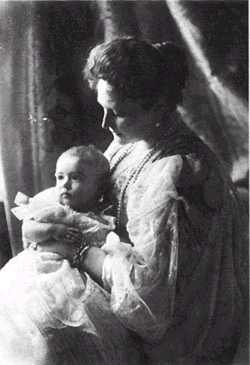Eastern Slavic naming customs are the traditional ways of identifying a person by name in countries influenced by East Slavic languages (Russian, Ukrainian and Belorussian: in Russia, Belarus, Ukraine.


Eastern Slavic naming customs are the traditional ways of identifying a person by name in countries influenced by East Slavic languages (Russian, Ukrainian and Belorussian: in Russia, Belarus, Ukraine.



A hypocorism (/ h aɪ ˈ p ɒ k ə r ɪ z ə m / hy-PAWK-ə-rih-zəm; from Ancient Greek ὑποκόρισμα (hypokorisma), from ὑποκορίζεσθαι (hypokorizesthai), meaning ‘to use -talk’) is a diminutive form of a name.


Eastern Slavic naming customs are the traditional ways of identifying a person by name in countries influenced by East Slavic languages (Russian, Ukrainian and Belorussian: in Russia, Belarus, Ukraine.



A hypocorism (/ h aɪ ˈ p ɒ k ə r ɪ z ə m / hy-PAWK-ə-rih-zəm; from Ancient Greek ὑποκόρισμα (hypokorisma), from ὑποκορίζεσθαι (hypokorizesthai), meaning ‘to use -talk’) is a diminutive form of a name.
A hypocorism (/ h aɪ ˈ p ɒ k ə r ɪ z ə m / hy-PAWK-ə-rih-zəm; from Ancient Greek ὑποκόρισμα (hypokorisma), from ὑποκορίζεσθαι (hypokorizesthai), meaning ‘to use -talk’) is a diminutive form of a name.
Eastern Slavic naming customs are the traditional ways of identifying a person by name in countries influenced by East Slavic languages (Russian, Ukrainian and Belorussian: in Russia, Belarus, Ukraine.
A hypocorism (/ h aɪ ˈ p ɒ k ə r ɪ z ə m / hy-PAWK-ə-rih-zəm; from Ancient Greek ὑποκόρισμα (hypokorisma), from ὑποκορίζεσθαι (hypokorizesthai), meaning ‘to use -talk’) is a diminutive form of a name.